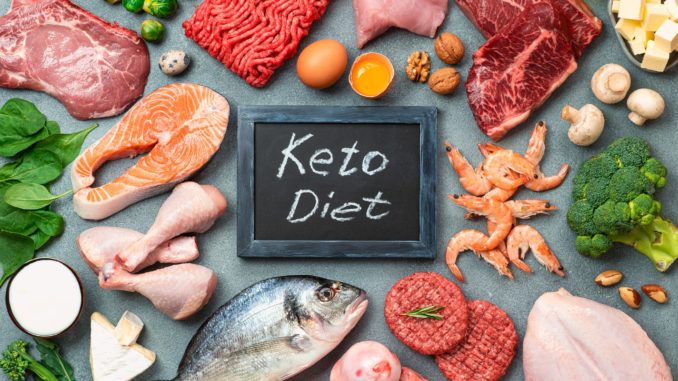What is the Keto Diet? A Comprehensive Guide to Ketogenic Eating
In a world where fad diets come and go, the ketogenic diet, often referred to as the keto diet, has garnered significant attention for its potential health benefits and weight loss effects. But what exactly is the keto diet, and how does it work? In this article, we’ll delve into the ins and outs of the keto diet, exploring its principles, benefits, and potential drawbacks, to help you decide whether it’s the right choice for you.
Understanding the Keto Diet
The ketogenic diet is a high-fat, low-carbohydrate eating plan that has been around for decades. Its primary goal is to shift your body into a state of ketosis, where it relies primarily on fat for fuel instead of carbohydrates. This metabolic state is achieved by drastically reducing your carb intake and increasing your fat consumption.
How Does Ketosis Work?
Normally, your body breaks down carbohydrates into glucose, which serves as the primary energy source. When you restrict carb intake, your liver starts producing molecules called ketones from stored fat. These ketones become an alternative fuel source for your body and brain, inducing a state of ketosis.
The Basic Principles of the Keto Diet
The keto diet typically consists of the following macronutrient breakdown:
High Fat: Approximately 70-75% of your daily calories come from healthy fats like avocados, nuts, seeds, and oils.
Moderate Protein: About 20-25% of your calories are derived from protein sources such as meat, fish, eggs, and dairy.
Low Carbohydrates: Carbs make up only about 5-10% of your daily caloric intake, primarily coming from non-starchy vegetables.
Potential Benefits of the Keto Diet
1. Weight Loss
One of the main reasons people turn to the keto diet is its potential for weight loss. By minimizing carb intake, your body starts using stored fat for energy, leading to a reduction in body fat over time.
2. Improved Blood Sugar Control
The keto diet may help stabilize blood sugar levels and improve insulin sensitivity, which is beneficial for individuals with type 2 diabetes or prediabetes.
3. Enhanced Mental Clarity
Some proponents of the keto diet claim improved focus, mental clarity, and cognitive function. Ketones are an efficient fuel source for the brain, which might explain these reported benefits.
4. Increased Energy Levels
As your body adapts to using fat for energy, many people experience sustained energy levels throughout the day without the crashes associated with carb-heavy diets.
Considerations and Potential Drawbacks
While the keto diet offers potential benefits, it’s essential to be aware of its potential drawbacks:
1. Keto Flu
When transitioning into ketosis, some people experience flu-like symptoms, including fatigue, headaches, and nausea. This is known as the “keto flu” and usually subsides within a few days to a week.
2. Nutrient Deficiencies
Restricting certain food groups may lead to nutrient deficiencies. It’s crucial to plan your meals carefully and consider supplementation to ensure you’re getting essential vitamins and minerals.
3. Limited Food Choices
The keto diet eliminates many carb-rich foods like bread, pasta, and certain fruits, which can make it challenging to maintain a balanced and varied diet.
FAQ’s About the Keto Diet
Q1: Can I eat any carbs on the keto diet?
While the keto diet is low in carbs, you can still consume carbs from non-starchy vegetables, such as leafy greens, broccoli, and cauliflower.
Q2: How long does it take to reach ketosis?
It typically takes a few days to a week of strict carb restriction to enter ketosis. Individual factors such as metabolism and activity level can influence the timeline.
Q3: Is the keto diet safe for everyone?
The keto diet may not be suitable for individuals with certain medical conditions, such as pancreatitis, liver disease, or a history of eating disorders. It’s essential to consult a healthcare professional before making significant dietary changes.
Q4: Can I maintain the keto diet long-term?
While some people follow the keto diet long-term, others may find it challenging to sustain due to its restrictive nature. Many individuals adopt a cyclical approach, alternating between periods of keto and higher carb consumption.
Q5: Will I lose muscle mass on the keto diet?
When following the keto diet, maintaining protein intake is crucial to prevent muscle loss. Including adequate protein in your meals and incorporating strength training exercises can help preserve muscle mass.
Conclusion
The keto diet is a unique and intriguing approach to eating that has gained popularity for its potential benefits, including weight loss and improved blood sugar control. However, it’s not a one-size-fits-all solution, and its restrictive nature may not be suitable for everyone. Before embarking on the keto journey, it’s essential to consider your individual health needs, consult a healthcare professional, and weigh the potential benefits against the challenges. Remember, a balanced and sustainable eating plan is key to achieving long-term health and well-being.

